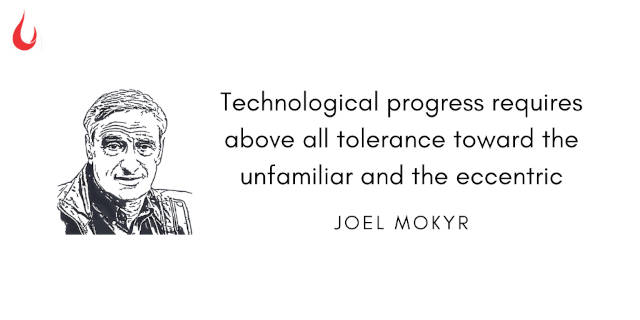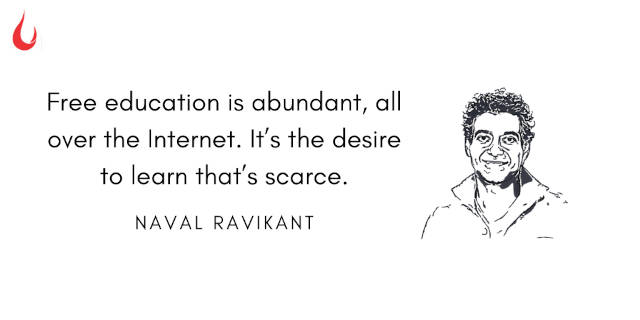[Photo by frank mckenna on Unsplash]
Good Morning,
All narratives have it that success must be earned. But in this book The Art of the Good Life: Thinking for Business and a Better Life, Rolf Dobelli suggests we challenge the notion.
He writes, “Now I want you to run a little thought experiment I got from Warren Buffett: ‘Imagine there are two identical twins in the womb, both equally bright and energetic. And the genie says to them, ‘One of you is going to be born in the United States, and one of you is going to be born in Bangladesh. And if you wind up in Bangladesh, you will pay no taxes. What percentage of your income would you bid to be the one that is born in the United States?’ Buffett is speaking here about the ovarian lottery. You could substitute Great Britain, Germany or any other developed nation for the USA, of course. How would you reply?’
“Most people I ask put the figure at 80%. I’d say the same. In other words, we’re prepared to sacrifice an extremely high proportion of our income to grow up in our preferred country. The fact that our place of birth is worth that much money to us makes it clear how greatly it influences our success.
“The ovarian lottery doesn’t end with your country of origin. You weren’t just born in a particular nation, but in an area with a particular postcode and into a particular family. None of that is within your control.”
Therefore, he goes on to submit, “What you are, you owe to your genes—and the environment in which your genetic blueprint was realized.”
His point made, Dobelli has two suggestions to offer.
“First: Remind yourself daily that everything you are, everything you have and can do, is the result of blind chance. For those of us blessed with good luck—i.e., for you and me—gratitude is the only appropriate response. One nice side effect is that grateful people are demonstrably happier people.
“Second: willingly and ungrudgingly surrender part of your (unearned) success to people who were born with the wrong genes into the wrong families, in the areas with the wrong postcodes. It’s not just noble; it’s commonsensical. Donations and taxes aren’t financial matters. First and foremost, they’re issues of morality.”
Have a great week.
In this issue
- The ingredients of innovation
- Naval Ravikant on education
- How to lose weight
The ingredients of innovation
What does it take for a society to be technologically creative? Why, for instance, did Europe experience a burst in technological creativity from 1500 until the Industrial Revolution? Before that, it was a continent in the boondocks. This is a question that occurred to the team at Farnam Street blog and they found pointers to answers in the works of Joel Mokyr, the American-Israeli economic historian.

Basis what they read up, the team pointed out that three key factors impact the occurrence of invention and innovation.
First of all, the society needs a supply of “ingenious and resourceful innovators who are willing and able to challenge their physical environment for their own improvement.” Fostering these attributes requires factors like good nutrition, religious beliefs that are not overly conservative, and access to education.
Second, there need to be incentives in place to encourage innovation. This is of extra importance for macroinventions—completely new inventions, not improvements on existing technology—which can require a great leap of faith. The person who comes up with a faster horse knows it has a market; the one who comes up with a car does not. Such incentives are most often financial, but not always. Awards, positions of power, and recognition also count.
Third, a technologically creative society must be diverse and tolerant. People must be open to new ideas and outre individuals. They must not only be willing to consider fresh ideas from within their own society but also happy to take inspiration from (or to outright steal) those coming from elsewhere.
Dig Deeper
- The Ingredients for Innovation (Farnam Street)
From the Founding Fuel Archives
- Six learnings on innovation from anti-Covid efforts (Rishikesh T Krishna)
- Clayton Christensen on Innovation: Finding the jobs to be done
Naval Ravikant on education
The New Delhi-born Naval Ravikant’s voice is now an influential one in Silicon Valley. His book will be out later this month and much is expected out of it. There are some parts though that he has chosen to offer as “bonus” material and can be accessed on his website. Such as the future of education. Whether you agree with him or not, he raises some interesting questions.

- If the primary purpose of school was education, the internet should make it obsolete. But school is mainly about credentialing.
- Schools survive anti-educational behaviour (i.e. groupthink) due to symbiosis between institutions that issue and accept credentials.
- Employers looking past traditional credentials can arbitrage the gap. @ycombinator made $Bs doing this for young founders.
- The more meritocratic an industry, the faster it moves away from false credentialing. (i.e., the MBA and tech startups.)
- A generation of auto-didacts, educated by the internet and leveraged by technology, will eventually starve the industrial-education system.
- Until then, only the most desperate and talented students will make the leap.
- Even today, what to study and how to study it are more important than where to study it and for how long.
- The best teachers are on the internet. The best books are on the internet. The best peers are on the internet.
- The tools for learning are abundant. It’s the desire to learn that’s scarce.
- Educational credentials are badges that admit one to the elite class. Expect elites to struggle mightily to justify the current system.
- Eventually, the tide of the internet and rational, self-interested employers will create and accept efficient credentialing…
- and wash away our obsolete industrial-education system.
Dig Deeper
How to lose weight

(Via WhatsApp)
We understand it’s a Monday. You must get to work and you may have cheated on your workout. Just how did you do it? Let everyone know on the Slack channel. And if you missed previous editions of this newsletter, they’re all archived here.
Bookmark Founding Fuel’s special section on Thriving in Volatile Times. All our stories on how individuals and businesses are responding to the pandemic until now are posted there.
Warm regards,
Team Founding Fuel

